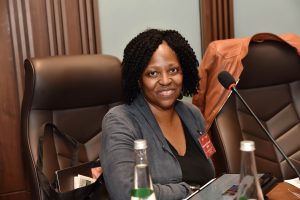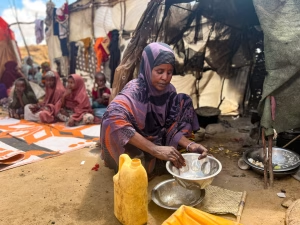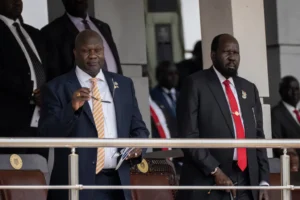Nearly three decades after the landmark Beijing Declaration charted a new course for women’s empowerment, global leaders have once again gathered to assess the journey so far — and to confront the uncomfortable truth that gender equality remains far from achieved.
At the Global Leaders’ Meeting on Women, co-hosted by China and UN Women, the United Nations Deputy Secretary-General, Amina J. Mohammed, delivered a powerful message urging the world to rekindle the spirit of 1995 and act decisively to protect the gains made for women and girls.
“Women’s rights are human rights,” she declared, recalling the optimism of the 1995 Fourth World Conference on Women, where the Beijing Declaration and Platform for Action were adopted.
Progress, But Not Enough
Ms. Mohammed commended countries that have “kept the flame alive” but warned that progress has been painfully slow. A recent UN Department of Economic and Social Affairs (DESA) report revealed that none of the gender equality targets are on track.
According to the report, around 708 million women remain excluded from the labour market due to unpaid care work, while 351 million women and girls risk being trapped in extreme poverty by 2030.
“We stand just five years from the deadline for our 2030 Sustainable Development Goals,” Ms. Mohammed said. “The hour is late. We are running out of time to make good on the promise we made three decades ago.”
The Beijing Roadmap Still Matters
The deputy UN chief reminded global leaders that the Beijing Declaration continues to influence major UN frameworks — including the 2030 Agenda for Sustainable Development and the Pact for the Future.
She stressed that women’s empowerment must remain central to national development plans and policies:
“In every negotiating room, in every budget we draft, and every policy we design, gender equality must be our organizing principle.”
The Economics of Equality
Beyond justice and fairness, Ms. Mohammed highlighted the economic benefits of empowering women. UN studies show that when women and girls gain access to quality education and digital skills, 30 million people could be lifted out of extreme poverty, injecting $1.5 trillion into the global economy within five years.
This economic argument, she said, should be a wake-up call to governments still hesitant to invest in gender equality.
A Call for Women in Leadership
As the meeting closed, Ms. Mohammed emphasized the need for more women in leadership and decision-making roles.
“We have the evidence that where women lead, we see more durable peace, more profitable businesses, and more inclusive policies,” she said.
Her words echo across regions like Africa, where the fight for gender inclusion has gained fresh energy through women-led social enterprises, local governance initiatives, and advocacy networks.











